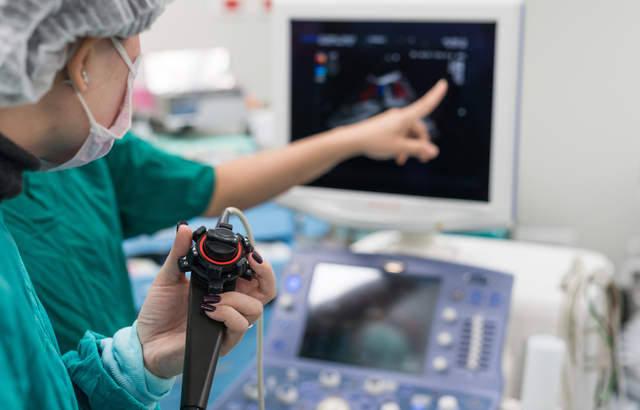


Most recent figures show that at the end of September, 64,962 people in England waited more than six weeks for heart ultrasounds (known as echocardiograms), compared to 3,238 people who waited this long at the end of February 2020.
This is the highest number since figures were first published in this form, with 44 per cent of the total waiting list for an echocardiogram (149,050) waiting six weeks or more.
Echocardiograms, or echos, are tests which look at the structure of the heart and are used when someone has had a heart attack, or if they have heart failure. They are often used to routinely diagnose congenital heart disease and heart valve problems.
Long waits put lives at risk
As NHS England works hard to recover from the pandemic’s disruption to “routine” care, significantly more echo tests are being performed in England now than during the first 2020 lockdown.However, our analysis shows that, on average, around 10,000 fewer echo scans are carried out each month than before the pandemic.
We have warned that widescale disruption and reduced access to these vital tests has created a huge “hidden” backlog of people with heart disease who have not yet made it onto treatment waiting lists.
Long waits put lives at risk. Delaying a heart disease diagnosis increases the likelihood of death or disability, despite decades of research giving us life saving treatments.
We need action now
The Government must act now to reduce the backlog of vital echo tests. Patients need to see a specific recovery plan for cardiovascular services in England that addresses the cardiology NHS workforce crisis and outlines how newly announced diagnostic centres could be used to help diagnose heart conditions.Dr Sonya Babu-Narayan, our Associate Medical Director and Consultant Cardiologist, said: “Waiting lists for heart treatments were too long even before the pandemic began, and they are now rising to record levels.
“Yet this is only half the story. Without an echocardiogram, doctors can’t see how well the heart is working and if someone needs potentially life saving treatment for heart disease.
“This matters because the long delays we now see for heart imaging tests create a domino effect of disruption to heart care and treatment that ultimately puts lives at risk. This is all the more tragic when effective heart treatments exist.
“The backlog of these vital heart tests must be urgently addressed. We need to see a specific plan for cardiovascular care recovery focused on tackling cardiology vacancies, training more heart specialists, and using new diagnostic hubs to deliver delayed heart diagnosis and care.
"This could make all the difference in preventing more deaths and disability from treatable heart conditions.”
Analysis from the BHF also reveals a stark “postcode lottery” for access to echocardiograms in England. In some English regions, 55 per cent of those waiting for an echo test had waited more than six weeks at the end of September 2021.
Diane’s story
 Diane Phillimore, 63, a carer from Calne in Wiltshire, has high blood pressure and aortic stenosis - a condition where the aortic valve becomes narrowed, reducing blood flow to the rest of your body.
Diane Phillimore, 63, a carer from Calne in Wiltshire, has high blood pressure and aortic stenosis - a condition where the aortic valve becomes narrowed, reducing blood flow to the rest of your body. She needs an echocardiogram to tell if she needs surgery to repair or replace her valve, but her original appointment in March 2020 was cancelled due to the pandemic. While it has now been rescheduled for late November, by then she will have been waiting almost two years.
Diane said: "Thankfully I feel ok, but I do worry because I haven’t got a clue if my heart’s getting worse.
“The whole situation is shocking. I just want to know if I need surgery or if my heart is working properly, so I can move forward. Until then, it’s always there in the back of my mind.
“I feel that heart patients have been a little bit neglected during all this. For many people lockdown is over, and life is returning to some normality.
"But for those like me with a heart condition that needs monitoring, it has left us worried, with uncertainty over what happens next.”
READ OUR REPORT


